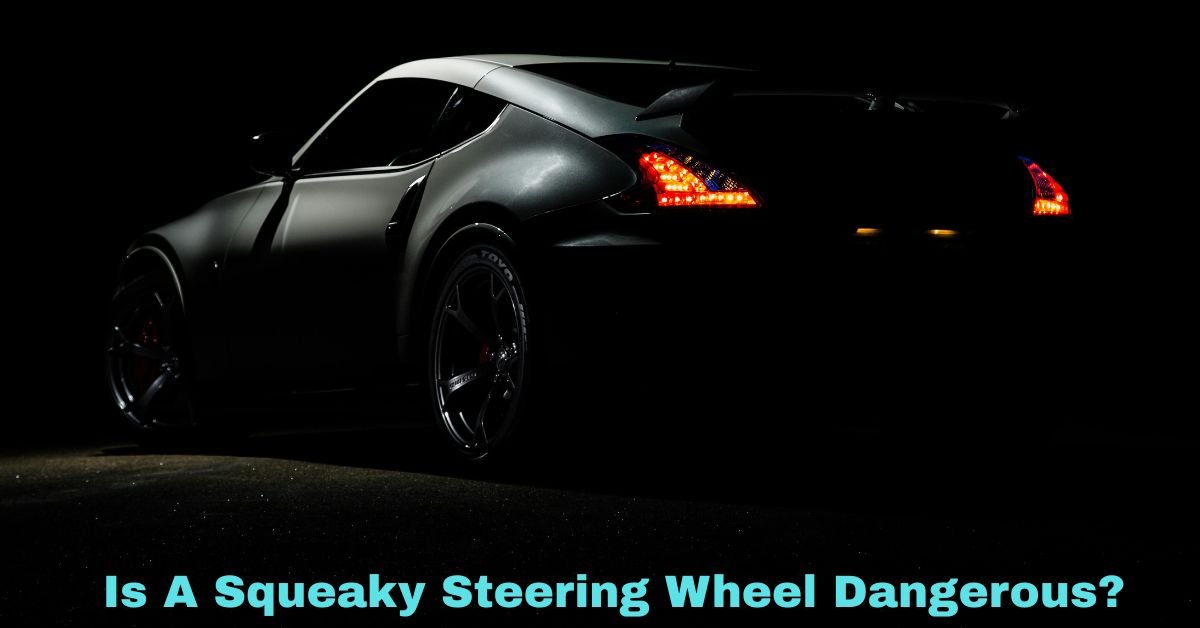Have you ever noticed a squeaking sound coming from your steering wheel while turning or driving? If so, you’re not alone. A squeaky steering wheel is one of those issues many drivers encounter, and while it might seem like a minor annoyance, it can sometimes point to more serious underlying problems. But is it actually dangerous? Let’s dive into what causes a squeaky steering wheel, whether it’s a safety concern, and what you should do about it.
Is a Squeaky Steering Wheel Dangerous? What You Need to Know
What Causes a Squeaky Steering Wheel?
There are several reasons why your steering wheel might be making that high-pitched, squeaky noise:
- Worn or Dry Steering Components
Over time, components in the steering column, like bushings or bearings, can dry out or wear down. When these parts lack proper lubrication, they can create friction, leading to squeaking or squealing sounds. - Low Power Steering Fluid
If your vehicle uses hydraulic power steering, low power steering fluid can result in noise when you turn the wheel. This can indicate a leak in the system or that the fluid needs topping off or replacing. - Steering Column Issues
The steering column houses many moving parts. If something inside the column is loose, misaligned, or worn out, it can produce noise as you move the wheel. - Suspension or Front-End Problems
Sometimes, the noise might not be coming from the steering wheel itself but from related components like ball joints, tie rods, or bushings in the front suspension. These can squeak under stress, especially during turns or over bumps. - Steering Wheel Clock Spring
The clock spring is a component that connects the airbag and electronic controls on the steering wheel to the vehicle’s electrical system. If it becomes worn or damaged, it may cause rubbing or squeaking noises.
Must Read: How To Clean A Sticky Steering Wheel?

Is It Dangerous?
In many cases, a squeaky steering wheel isn’t immediately dangerous—but that doesn’t mean you should ignore it. Knowing what’s causing the squeak is crucial:
- If it’s due to lack of lubrication or worn bushings, it may not be a direct safety hazard right away, but it could worsen over time, leading to more expensive repairs or eventual component failure.
- If it’s related to low power steering fluid, this could affect the ease of steering and cause your steering to feel jerky or heavy, which can be dangerous in emergency maneuvers.
- If the squeak is caused by steering or suspension issues, it could mean parts are wearing out that could eventually break or compromise your ability to steer accurately. That’s definitely a safety risk.
- If it’s related to the clock spring, there’s a chance that electronic functions like the airbag or horn could be compromised. That’s another reason to take even small noises seriously.
In short, while a squeaky steering wheel doesn’t always mean immediate danger, it should never be ignored. It is your car’s method of alerting you to a problem.
What Should You Do?
Here are a few steps you can take if your steering wheel starts squeaking:
- Listen Closely
Try to identify when the noise occurs. Does it happen when you turn the wheel? Only at low speeds? When the car is cold? These details can help a mechanic pinpoint the problem. - Check Power Steering Fluid
If you’re comfortable under the hood, check your power steering fluid level. If it’s low, top it off with the correct type for your vehicle—but be sure to investigate possible leaks. - Schedule a Professional Inspection
Even if the car still feels safe to drive, it’s best to have a qualified mechanic look at it sooner rather than later. They can check the steering system, suspension, and steering column for signs of wear or damage. - Don’t Wait Too Long
Ignoring a squeak could turn a simple maintenance issue into a costly repair job—or worse, a safety hazard on the road.
Final Thoughts
A squeaky steering wheel might seem like a minor annoyance, but it can be a warning sign that something’s not quite right. While not always dangerous on its own, it often indicates wear or problems in your steering or suspension system that could affect your vehicle’s performance and safety.
Taking a “better safe than sorry” approach is always wise when it comes to your car’s steering. If you hear something unusual, get it checked out. Your safety—and your wallet—will thank you.
